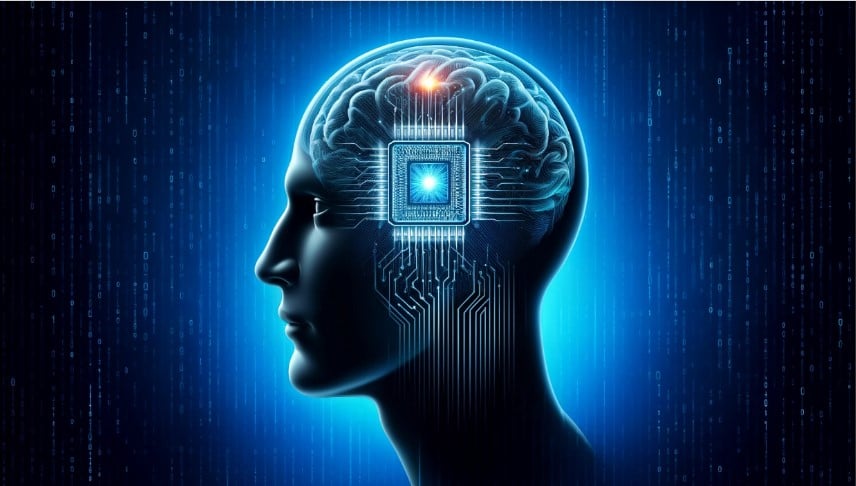
China Introduces New Brain Chip Neucyber at Zhongguancun Forum
China revealed its first brain-machine interface (BMI) at the Zhongguancun (ZGC) forum on April 25. The brain chip implant, called Neucyber, which is similar to Elon Musk’s Neuralink technology, was independently developed by a Chinese state-backed company and brain research institution, according to Xinhua, a state-run news agency.
The Nuecyber BMI technology was tested on a monkey with its hands physically restrained. The technology allowed it to use its thoughts to manipulate a robotic arm and grasp a strawberry.
“The BMI serves as the ‘information highway’ for the brain, facilitating communication with external devices and providing cutting-edge technologies in human-machine interaction and hybrid intelligence,” said Luo Minmin, director of the Chinese Institute for Brain Research, Beijing.
Termed as China’s first “high-performance invasive BMI technology,” Neucyber, which involves multiple technologies, “still is a long way in terms of technological refinement and iteration,” says Luo.
While Neuralink has showcased its first human brain-chip implant user engaging in online chess, China has yet to initiate human trials utilizing its own BMI technology.
Earlier in February, China’s Tsinghua University announced its first brain-computer interfaces (BCI) rehabilitation trial. According to state-backed news outlet Global Times, a different wireless minimally invasive BCI (brain-computer interface) called Neural Electronic Opportunity (NEO) was successfully implanted in a quadriplegic patient in 2023.
These technologies come after the country’s Ministry of Industry and Information Technology identified BCI as “innovative, iconic products“.
In conjunction with its announcement, the government also founded a 60-researcher laboratory in 2023, with a primary focus on expediting innovation and development within BMI technology.
Additionally, it aims to create user-friendly and secure brain-computer interface products with potential applications in various fields, including medical rehabilitation, autonomous driving, and virtual reality.
The Chinese government also aims to accelerate innovation and develop key technologies like brain-computer fusion, brain-like chips, and brain-computing neural models.

 Previous Story
Previous Story

 Latest articles
Latest articles 

Leave a Comment
Cancel